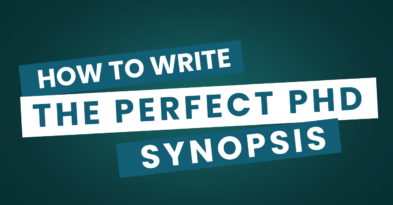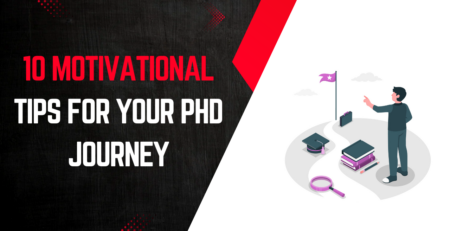Life After PhD: What’s Next and How to Prepare for It
Kenfra Research - Shallo2025-04-22T14:12:02+05:30Completing a PhD is a monumental achievement—years of research, writing, and academic rigor culminate in one final submission and a doctoral degree. But as the celebrations fade, a new and sometimes daunting question emerges: What comes after the PhD? For many, life after PhD can be uncertain, filled with possibilities yet shrouded in doubt. In this blog, we’ll explore your life after PhD options, how to prepare for each pathway, and tips to transition smoothly from student to professional life.

Understanding Life After PhD
A PhD is not just a degree—it’s a transformation. You’ve acquired deep knowledge in your field, honed research skills, and cultivated the ability to think critically and independently. However, the post-PhD landscape can vary greatly depending on your goals, discipline, and the opportunities available in your region or globally.
Your journey after the PhD can branch into multiple directions—academia, industry, consulting, entrepreneurship, or even something entirely different like writing or public policy. The key is understanding your strengths, interests, and long-term vision.
Academic Career Path
- Postdoctoral Research
A common first step for many PhDs is a postdoctoral research position. This is especially true in fields like science, engineering, and life sciences. Postdocs allow you to deepen your expertise, publish more research, and build an academic portfolio that is essential for landing a faculty position.
Pros:
- Continue research in your area of expertise
- Build collaborations
- Increase publication output
Cons:
- Limited job security
- Often underpaid and overworked
- Highly competitive
- Faculty Positions
Becoming a lecturer, assistant professor, or research fellow is often seen as the ultimate academic goal. However, the competition is fierce, especially for tenure-track roles. Teaching experience, publications in high-impact journals, and strong recommendation letters are crucial.
- International Academic Careers
PhDs often consider moving abroad for academic opportunities. Countries like the UK, US, Germany, Australia, and Canada have vibrant research ecosystems and offer better funding or work-life balance.
Non-Academic Career Opportunities
Leaving academia is no longer seen as “giving up.” In fact, many industries value PhD graduates for their analytical thinking, project management skills, and subject expertise.
- Industry Research & Development
Fields like biotech, pharmaceuticals, data science, and AI are actively hiring PhDs. These roles often involve applied research, product development, and innovation.
- Government and Policy Roles
Think tanks, government agencies, and policy institutes need experts to inform decision-making. Your research background can be pivotal in shaping policy in healthcare, environment, or education.
- Consulting
Management consulting firms like McKinsey, BCG, and Deloitte recruit PhDs for their problem-solving abilities. You can work across industries offering strategic solutions to complex challenges.
- Science Communication and Writing
If you have a knack for writing, you can pursue careers in science journalism, publishing, or technical writing. Making complex ideas accessible to the public or stakeholders is a valuable skill.
- Tech and Data Science
If your PhD involved programming, statistics, or computational modeling, you’re well-suited for roles in data science, machine learning, or software development.
Entrepreneurship After PhD
With specialized knowledge and a unique perspective, many PhDs go on to launch their own ventures. Whether it’s a tech startup, research consultancy, or educational platform, entrepreneurship allows you to apply your expertise creatively.
Tips for PhD Entrepreneurs:
- Validate your business idea
- Seek mentorship from startup incubators
- Understand the market beyond academia
- Learn basic business and marketing skills
Preparing for Life Beyond Academia
- Skill Assessment
Take time to reflect on what you’re good at beyond your thesis. Are you a great communicator? A skilled coder? A team leader? Identify transferable skills that appeal to employers outside academia.
- Resume and LinkedIn Optimization
Unlike academic CVs, industry resumes are concise and outcome-oriented. Highlight achievements, not responsibilities. Tailor your LinkedIn profile with keywords that match your target job roles.
- Upskilling
Consider short courses or certifications in areas like:
- Project Management (e.g., PMP, Agile)
- Data Analytics or Python Programming
- Communication or Business Writing
- Intellectual Property Rights (IPR)
Building a Professional Network
Networking is essential for career development—especially post-PhD. Start building meaningful connections early on.
Ways to Network:
- Attend conferences and workshops
- Join professional associations in your field
- Engage in online platforms like LinkedIn, ResearchGate, or Twitter
- Connect with alumni from your university
Remember, networking is not about asking for jobs—it’s about building relationships and sharing knowledge.
Mental Health and Identity Shift
Life after PhD isn’t just a logistical transition—it’s an emotional and psychological one too. Many scholars feel a loss of identity after leaving academia. The intense focus of doctoral research often becomes a part of who you are.
How to Cope:
- Recognize that your PhD is a part of your identity—not your whole identity
- Seek peer support groups or coaching
- Celebrate your growth, not just titles or positions
- Allow yourself time to explore and redefine success
Conclusion
Life after PhD is filled with opportunities, even if the path isn’t always clear. Whether you choose academia, industry, entrepreneurship, or something entirely new, remember that your PhD has equipped you with powerful skills—critical thinking, perseverance, and adaptability.
To prepare:
• Start exploring your life after PhD options before you finish your degree
• Build a versatile professional profile
• Network and stay open to new experiences
• Take care of your mental well-being
Your PhD is not the end—it’s the beginning of a new, exciting chapter. Whatever path you choose, you have already proven that you can overcome challenges, learn deeply, and contribute meaningfully to the world. Now, it’s time to shape your future.
Kenfra Research understands the challenges faced by PhD scholars and offers tailored solutions to support your academic goals. From topic selection to advanced plagiarism checking.











Leave a Reply